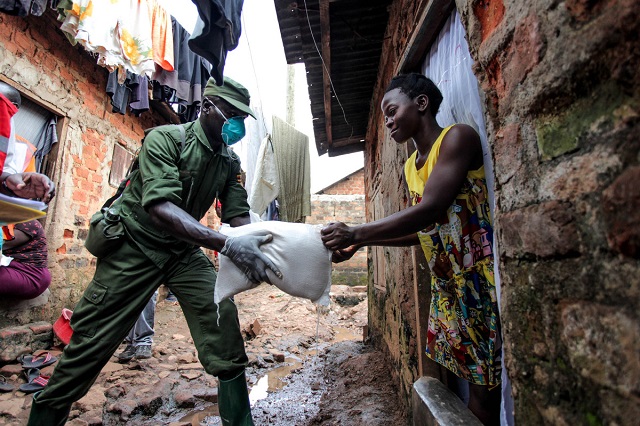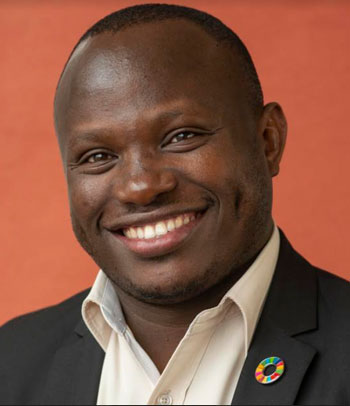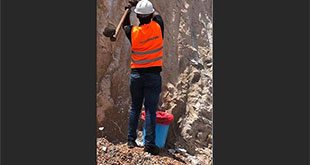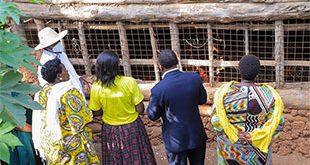
The most recent 2014 population census indicates that 12.4 percent of the Ugandan population live with a disability
COMMENT | Ambrose Murangira | The government of Uganda has started the distribution of food and essential items to the most vulnerable people across Kampala and Wakiso. This will be a measure to attenuate the impact caused by the Coronavirus that has limited economic activities. Each household will be given 6kgs of maize flour (posho) and 3kgs of beans whereas lactating mothers and the sick will receive powdered milk and 2kgs of sugar each.
The Prime Minister, Dr. Ruhakana Rugunda pointed out that the distribution of food will be done at the Local Council one level to easily identify vulnerable persons who are supposed to receive relief food from the government. The food will be delivered to homes of ‘vulnerable’ persons by Police and Soldiers. This is a good move as it indirectly addresses mobility challenges persons with disabilities face.
Persons with disabilities tend to be forgotten not only during planning but also amidst a crisis like the COVID-19. How do we therefore ensure that persons with disabilities are not left out in food distribution?
Before we get answers to this question, we need to look at barriers hindering participation of persons with disabilities in accessing relief food. The most significant barrier is that government workers have reduced knowledge and awareness of disability both in general and for specific types of disabilities.
No measures have been put in place to explain how persons with disabilities will easily access the food relief considering their vulnerability, there is no categorization of vulnerable people, information and communication on access to relief food are not accessible and most LC 1 Chairpersons do not know where persons with disabilities live and how to communicate with them.
More so, there is still a prevailing attitude in our communities that views persons with disabilities as second class citizens.
Also, the social distancing and lockdown have directly affected persons with disabilities especially those who use sign language interpreters and personal assistants
It should be noted that over 70% of persons with disabilities in Uganda are hand-to-mouth earners which further makes them more vulnerable thus deserving to benefit from relief food.
The most recent 2014 population census indicates that 12.4 percent of the Ugandan population live with a disability. Living with a disability categorizes this group as part of the most vulnerable people within our communities.
However, persons with disabilities tend to be forgotten not only during planning but also amidst a crisis like the COVID-19 that has befallen the continent. Better strategies need to be put in place in ensuring that persons with disabilities and families of children with disabilities or who have a family member with severe disabilities have an easy and smooth access to the food relief that the government is distributing
For example the Local Council Chairperson should identify all persons with disabilities in her/his area. The male and female councilors representing persons with disabilities at local council one could help. The legally registered CBOs for persons with disabilities could be consulted as well and After identifying persons with disabilities, talk to them directly.
Ask them how and who they recommend receiving the food items (if they cannot handle for themselves, for example, those with severe physical impairment, visual impairment, intellectual impairment, Deaf-Blind among others), tell them the contents and quantity in each bag and give them opportunity to validate the food items where they prefer to be put as some of them may not be able to lift heavy bags.
It is important to brief the delivery officers (police and soldiers) about the known homes of persons with disabilities and type of disability. This will alert them to be patient in case of mobility and hearing impairment. It is also important to support families of children with disabilities or who have a family member with severe disabilities of whom they need to take care. They are vulnerable families and yet they are neglected and ignored in our communities.
We cannot wait. We need to act, and we need to act now.
******
 Ambrose Murangira is the Disability Inclusion Advisor, Light for the World
Ambrose Murangira is the Disability Inclusion Advisor, Light for the World
 The Independent Uganda: You get the Truth we Pay the Price
The Independent Uganda: You get the Truth we Pay the Price



